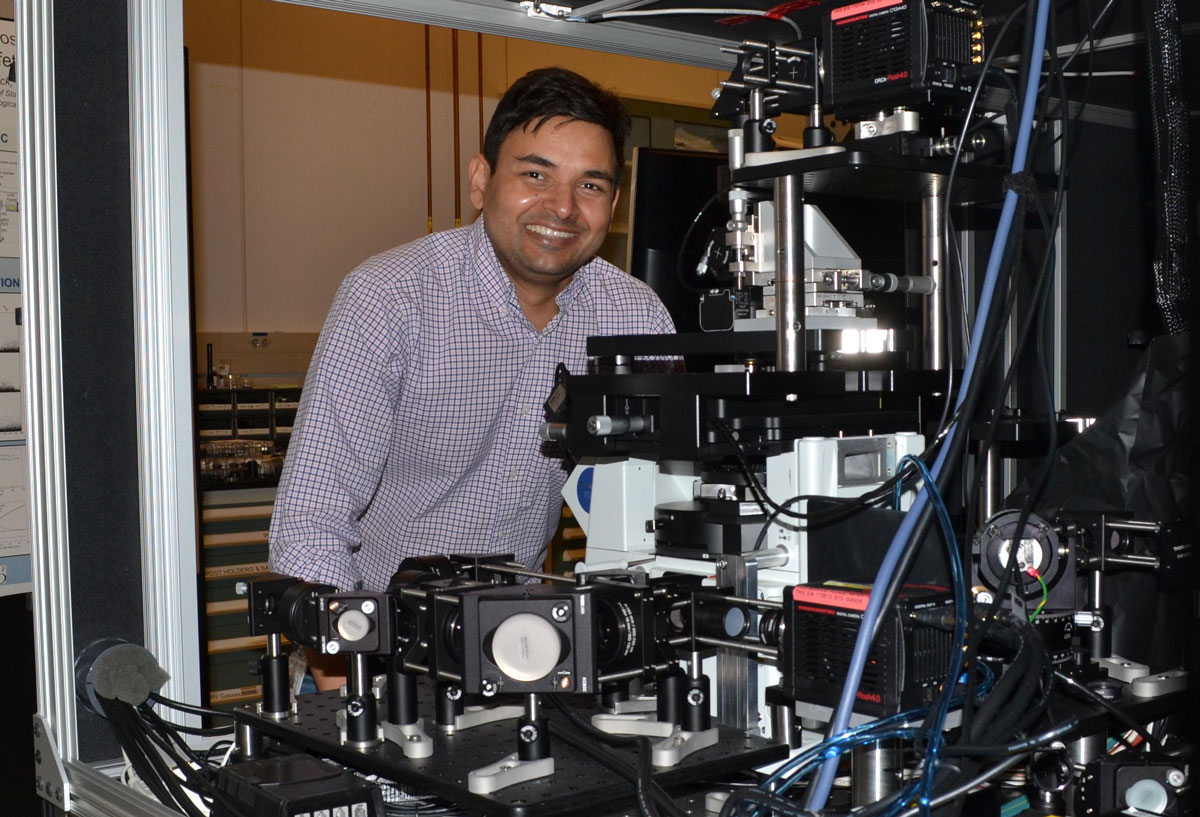MBL Receives Grant to Establish Advanced Light-Sheet Microscopy Laboratory

As the MBL takes a leading role in developing new and emerging research organisms such as squid, butterflies, axolotls, etc., there is a growing need for optical microscopes that can image large embryos/organisms for several hours to days, without harming them due to light exposure.
To meet this need, the MBL recently received a grant from the Arnold and Mabel Beckman Foundation to build an advanced light-sheet microscopy system. This innovative system will be ideally suited to imaging embryos and organisms spanning a wide range of sizes (100μm-1 mm), gently and for long periods of time. It will primarily be used with novel research organisms that will advance our understanding of development, regeneration, and the formation of neural circuits.
The grant to MBL is part of a $9.6 million investment by the Arnold and Mabel Beckman Foundation in advanced light-sheet technology. Five of the other grant recipients have connections to the MBL’s Advanced Research Training courses as alumni, course faculty, and/or course lecturers.
 Microscopy innovator Abhishek Kumar. Credit: Anthony Mautino
Microscopy innovator Abhishek Kumar. Credit: Anthony MautinoThis new, cutting-edge microscopy system at MBL, and training to use it, will be freely accessible to the hundreds of scientists and students that convene at the MBL each year. Abhishek Kumar, MBL Investigator and CZI Imaging Scientist, is the principal investigator on the grant and initiative. The co-PIs are MBL Director Nipam Patel and MBL Associate Scientist Karen Echeverri.
A limiting factor for light-sheet microscopy is handling and analyzing the large amounts of imaging data the instrument collects. As an integral part of this new, open-source microscopy system, which the investigators call the Multi-View SPIM, efficient approaches for batch handling of data on high-performance Graphical Processing Units (GPUs) are being innovated. The system will also leverage computer vision and deep learning approaches to optimize analysis of the imaging data collected.
This technology will form the core of a new lightsheet laboratory at MBL that aims to enhance MBL’s already conducive environment for interdisciplinary research, disseminate and share the new lightsheet system and image analysis tools with the broader community, train researchers at all educational levels, transfer knowledge via online tools and in-person workshops at the MBL and elsewhere, and enable biological discoveries.
Other collaborators in the initiative include Edwin Munro, associate professor in Cell and Molecular Biology at the University of Chicago; H. Birali Runesha, director of the Research Computing Center, University of Chicago; and Kyle DeMarr, Anthony Mautino, and Carsten Wolff of the MBL.
COMING SOON! The Marine Biological Laboratory is hosting a conference and workshop on Light-Sheet Microscopy May 8-14, 2021. Registration information is here.